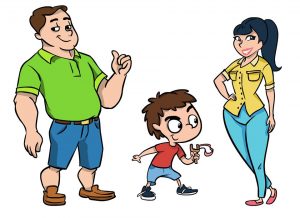Table of Contents
Week 1 | English Grammar
Day 4 |I am doing (present continuous)
Day 5 |Are you doing? (present continuous questions)
Day 6 |I do/work/like (present simple)(present continuous questions)
Week 2 | English Grammar
Day 1 |I don't... (present simple negative)
Day 2 |Do you...? (present simple questions)
Day 3 |I am doing (present continuous) I do (present simple)
Day 4 |I have... and I've got...
Day 6 |Worked/got/went etc (past simple)
Week 3 | English Grammar
Day 1 |I didn't... did you...? (past simple negative and questions)
Day 2 |I was doing (past continuous)
Day 3 |I was doing (past continuous) and I did (past simple)
Day 4 |I have done (present perfect 1)
Day 5 |I've just... I've already... I haven't...yet (present perfect 2)
Day 6 |Have you ever...? (present perfect 3)
Week 4| English Grammar
Day 1 |How long have you...? (present perfect 4)
Day 3 |I have done (present perfect) and I did (past)
Day 4 |Is done, was done (passive 1)
Day 5 |Is being done, has been done (passive 2)
Day 6 |Be/have/do in present and past tenses
Week 5| English Grammar
Day 1 |Regular and irregular verbs
Day 2 |What are you doing tomorrow?
Week 6| English Grammar
Day 2 |Must, mustn't, don't, need to
Day 6 |Do this! Don't do that! Let's do that
Week 7| English Grammar
Day 2 |There is... There are...
Day 3 |There was/were... There has/have been... There will be...
Day 6 |Have you? Are you? Don't you? etc
Week 8| English Grammar
Day 1 |Too/either/so am I/neither do I etc
Day 2 |Isn't/haven't/don't etc (negatives)
Day 3 |Do they? Is it? Have you?
Day 4 |Forming questions (who/what/why/where/when/which)
Day 5 |What...? Which...? How...?
Day 6 |How long does it take...?
Week 9| English Grammar
Day 1 |Do you know where...? I don't know what... etc
Day 2 |He/she said that... He/she told me that...
Day 3 |Work/working Go/going Do/doing
Day 4 |I want you to... I told you to...
Day 5 |I went to the shop to...
Day 6 |Go to... Go on... Go for... Go -ing... Get…
Week 10| English Grammar
Day 4 |I/me He/him They/them etc
Day 6 |Whose is this? It's mine/yours/hers etc
Week 11| English Grammar
Day 1 |Myself/yourself/themselves etc
Week 12| English Grammar
Day 2 |All/most/some/any/no/none etc
Week 13| English Grammar
Day 2 |If we go... if you see... etc
Day 3 |If I had... If we went... etc
Day 4 |A person who... A thing that/which (relative clauses 1)
Solids, Liquids and Gasses
KS3 Chemistry Questions– Solids, Liquids and Gasses


1. Which state of matter has a definite shape?
a. Solid
b. Liquid
c. Gas
d. None of them
2. Which state of matter will take the shape of the container it is put in?
a. Solid
b. Liquid
c. Gas
d. None of them
3. The particles in a liquid are unable to move.
a. True
b. False
4. What is the name of the process of moving from a gas to a liquid?
a. Evaporation
b. Melting
c. Condensation
d. Freezing
5. Which is the most stable state of matter?
a. Solid
b. Liquid
c. Gas
d. They are all equally stable
6. If we change the state of matter, the number of particles will remain the same
a. True
b. False
[bg_collapse view=”link” color=”#fafafa” expand_text=”Reveal Answer” collapse_text=”Hide Answer” inline_css=”background: #2ea3f2; padding: 9px; font-size: 14px; font-weight: 600;” ]
1. a. Solid
2. b. Liquid
3. b. False
4. c. Condensation
5. a. Solid
6. a. True
[/bg_collapse]

1. Explain why solid particles are unable to move.
2. Why can a gas be compressed, while solids and liquids cannot?
3. What creates pressure in a container of gas?
4. What happens, in terms of energy, when a substance changes from a solid to a liquid?
5. If I were to heat a container of gas with a Bunsen burner, what effect would this have on the particles inside?
6. If I was to melt something, then evaporate it, what state of matter did it begin as, and what did it end as?
[bg_collapse view=”link” color=”#fafafa” expand_text=”Reveal Answer” collapse_text=”Hide Answer” inline_css=”background: #2ea3f2; padding: 9px; font-size: 14px; font-weight: 600;” ]
1.There are very strong bonds between particles which is why they cannot move.
2.Solids and liquids do not have much space between the particles but gasses do. This means that air can be squashed out from between gas particles.
3.Pressure is created by how often the particles of a gas are hitting the sides of a container.
4.Energy will be gained because the substance is becoming less stable
5.The particles would all be moving faster because of the raised temperature.
5.It began as a solid and ended as a gas.
[/bg_collapse]

